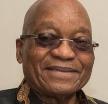Why former NDPP Vusi Pikoli decided to charge Zuma with corruption
15 March 2019
Former National Director of Public Prosecuting Authority (NDPP) Vusi Pikoli has laid bare the reasons why he decided to institute corruption charges against former president Jacob Zuma in 2005.
In an affidavit filed in the KwaZulu-Natal High Court, Pikoli said he acted "cautiously and in accordance with the legal requirements".
Zuma has filed a 300-page affidavit in the High Court, asking for a permanent stay of prosecution.
Pikoli overturned the decision of his predecessor, Bulelani Ngcuka, in August 2003, that there was no reasonable prospect of a successful prosecution of Zuma.
Shaun Abrahams was among the former NDPPs who filed affidavits, while Mokotedi Mpshe and former Scorpions heard Leonard McCarthy refused to consult with the State.
"I admit my decision was momentous," Pikoli said in his affidavit.
Evidence
He said his decision to prosecute Zuma, followed evidence that emerged in the trial of Zuma's former financial advisor and convicted fraudster, Schabir Shaik.
He added that the prosecuting team brought the evidence to his attention and that it was evidence which was not in front of Ngcuka at the time he took his decision.
"The fact that the total of all the payments to Mr Zuma, even without interest, exceeded R4m is an important new fact. That amount was and is far beyond what Mr Zuma could afford to repay from his legitimate income," he said.
"Upon a thorough assessment of all the available facts, evidence and circumstances, there was a reasonable prospect of a successful prosecution. I deny that there had to be exceptional circumstances justifying my decision to prosecute Mr Zuma."
Pikoli said Ngcuka had decided there was insufficient admissible evidence incriminating Zuma for a prosecution against him to proceed.
In taking his decision in 2003, Ngcuka said although there was a prima facie case of corruption against Zuma, it was doubtful the National Prosecuting Authority's (NPA) prospects of success were strong enough for a "winnable" case.
Ngcuka also said he believed that the decision to prosecute at that stage would "worsen the already tense political climate and may even lead to political violence".
But Pikoli said following the briefing by the prosecution team on June 17, 2005 and discussions with senior advisers at the NPA, as well as his own detailed consideration of the trial court's judgment in the Shaik matter - he concluded that there was indeed a reasonable prospect of a successful prosecution of Zuma.
"Mr Shaik's attempted innocent explanation that the payments were loans, and that there were written loan agreements to substantiate this, was rejected by the court.
"In particular, the so-called revolving loan agreement that was introduced as part of the defence case, was found to be a sham," Pikoli argued in his affidavit.
Decision to prosecute
He said the decision to prosecute Zuma was based on his assessment of the admissible evidence and the prospects of a successful prosecution and "nothing else".
"In the light of my assessment of those matters, I believed that the interests of justice required that Mr Zuma be prosecuted. What I did not do was try and put myself in the shoes of Mr Ngcuka and second-guess his decision based on the evidence available to him at the time he took it.
"Indeed, I did not ask to be briefed on what that evidence was, and consequently did not know what it was. My focus was on what the Shaik trial court found had happened and what the prosecution team believed they could prove and how they intended doing so in any future trial of Mr Zuma," he said.
During Zuma's last appearance in the KwaZulu-Natal High Court in Pietermaritzburg on November 30, 2018, Deputy Judge Mjabuliseni Madondo ordered that permanent stay of prosecution arguments, together with criminal proceedings, be heard on May 20.
Thales, the arms company implicated with Zuma, also filed its application in the High Court to have the prosecution permanently set aside.
It claimed that it had been denied a fair trial because of unreasonable delays, and that its right to present and challenge evidence had also been denied.
Zuma faces serious charges, including one count of racketeering, two counts of corruption, one count of money laundering, and 12 counts of fraud relating to 783 payments he allegedly received in connection with the controversial arms deal.

